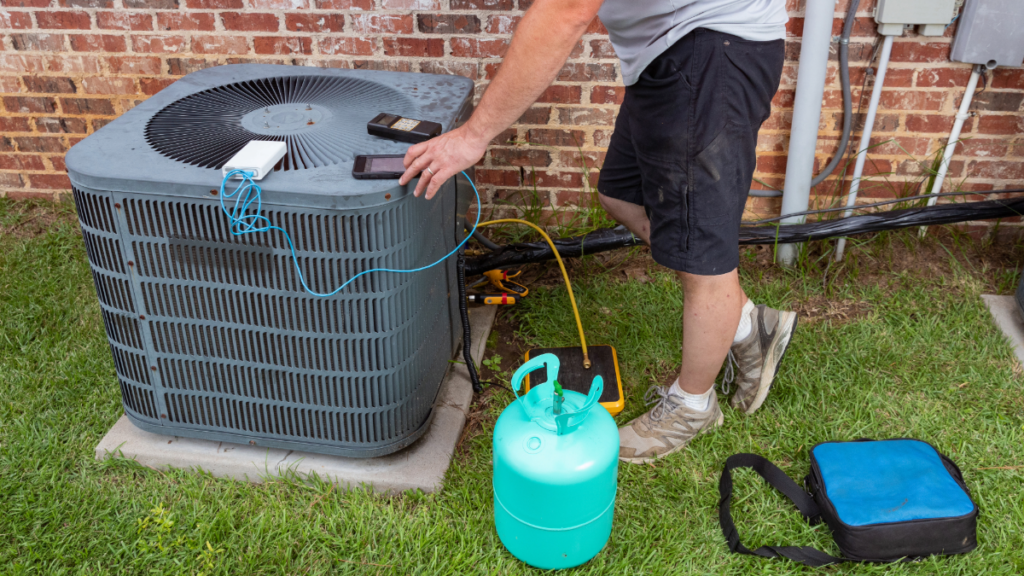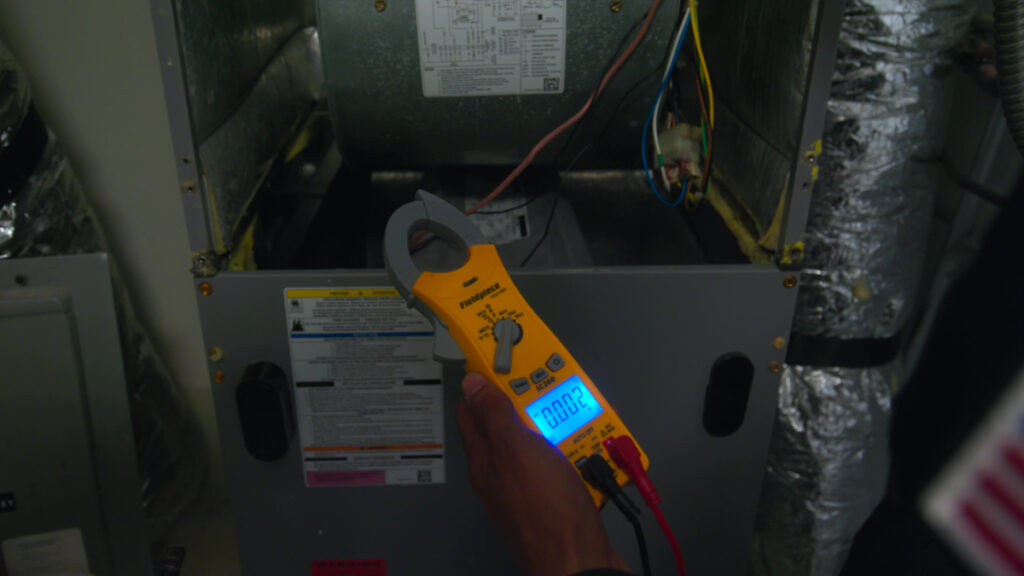The Future of AC Refrigerants Is Changing – Are You Ready?
If you’re planning to upgrade or replace your air conditioning system, there are major refrigerant changes in 2025 that you need to know about. R410a refrigerant, the standard in most residential and commercial HVAC systems, is being phased out due to its high global warming potential (GWP).
Starting January 1, 2025, manufacturers will no longer produce R410a-based air conditioners or heat pumps, and all new HVAC systems must use eco-friendlier refrigerants like R32 refrigerant and R-454B refrigerant. These changes are driven by EPA environmental regulations, affecting installation, repair costs, and long-term HVAC choices for homeowners.
At Custom Air Conditioning & Air Quality, we’re here to help you navigate this transition, ensuring you select the best HVAC refrigerant replacement for your home.

Why Is R410a Refrigerant Being Phased Out?
R410a refrigerant has been widely used for years, but it contributes significantly to climate change. To combat its environmental impact, the EPA and global regulatory bodies have mandated a shift toward low-GWP refrigerants that are more energy-efficient and sustainable.
The Main Reasons for the Phase-Out:
- High Global Warming Potential (GWP): R410a has a GWP of 2,088, meaning it traps over 2,000 times more heat than CO₂ when released into the atmosphere.
- Environmental Regulations: The American Innovation and Manufacturing (AIM) Act enforces the phase-out as part of a long-term HFC reduction strategy.
- Better Energy Efficiency: New AC refrigerants like R32 and R-454B help lower energy consumption, reducing homeowners’ utility bills over time.
If your HVAC system currently uses R410a, you won’t be forced to replace it immediately, but future repairs may become expensive as R410a supplies decline.
Key Dates for the R410a Phase-Out
Understanding the phase-out timeline can help you make informed decisions about HVAC replacements and refrigerant costs.
- January 1, 2025 – No new R410a-based air conditioning systems can be manufactured or installed.
- End of 2025 – The production and import of R410a refrigerant will cease.
- Beyond 2025 – Refrigerant costs will rise as R410a becomes harder to find, making AC repairs more expensive.

How This Change Affects Homeowners
The transition away from R410a will have a significant impact on homeowners, especially those considering an HVAC replacement or repair.
If You Currently Have an R410a System
- You can continue using it, but as R410a refrigerant becomes scarce, servicing costs will rise.
- Reclaimed R410a will be used for repairs, but it won’t be as widely available, driving up maintenance expenses.
- If your AC system is over 10 years old, it may be more cost-effective to replace it rather than deal with higher refrigerant prices.
If You’re Replacing Your AC System
- As of 2025, all new HVAC units will use either R32 refrigerant or R-454B refrigerant.
- New refrigerant-based systems are 10–15% more expensive, but they offer better efficiency and lower operational costs.
- Choosing a new AC refrigerant now ensures compliance with future regulations and prevents unexpected price hikes.
What Are the New AC Refrigerants?
With R410a refrigerant being phased out, homeowners will need to upgrade to air conditioners that use new, environmentally friendly refrigerants. The two main replacements are R32 refrigerant and R-454B refrigerant.
R32 Refrigerant: A Leading Alternative
- Lower Global Warming Potential (GWP) – R32 has a GWP of 675, which is significantly lower than R410a.
- Higher Energy Efficiency – Systems using R32 refrigerant consume less energy, reducing cooling costs.
- Already in Use – Many major HVAC manufacturers have adopted R32 refrigerant for their latest air conditioning models.
R-454B Refrigerant: Another Next-Generation Option
- Ultra-Low Environmental Impact – With a GWP of 466, R-454B refrigerant is even more sustainable than R32.
- Designed for New HVAC Systems – Many brands, including Trane, are incorporating R-454B refrigerant into their future-ready systems.
- Improved System Performance – R-454B enables better cooling efficiency while complying with EPA refrigerant guidelines.
Both R32 and R-454B refrigerants are considered A2L-classified refrigerants, meaning they are mildly flammable and require specialized installation and maintenance. At Custom Air Conditioning & Air Quality, our certified technicians are trained to handle these new refrigerants safely and efficiently.
Should You Upgrade Your HVAC System Now?
Now that 2025 is here, homeowners need to plan for the refrigerant transition and consider their HVAC system’s future repair and efficiency costs. Since R410a-based systems are no longer being manufactured, it’s important to understand your options if your air conditioner needs servicing or replacement.
Why Upgrading Now Makes Sense
- ✔ R410a Systems Are No Longer Available – After January 1, 2025, you cannot install a new R410a-based AC system, as manufacturers have switched to R32 and R-454B refrigerants.
- ✔ Rising R410a Refrigerant Costs – As the supply of R410a dwindles, repair costs for existing systems will continue to increase significantly.
- ✔ More Energy Savings with New Refrigerants – R32 and R-454B refrigerant systems are more efficient, leading to lower monthly energy bills and better cooling performance.
- ✔ Avoid Expensive Repairs – If your AC unit is over 10 years old, it may be more cost-effective to replace it rather than continue paying for costly refrigerant recharges and part replacements.
If you still have an R410a system, you can continue using it, but servicing will become more expensive and harder to schedule as refrigerant availability declines. Planning your HVAC upgrade now ensures you get the best system for long-term performance and savings.
How Custom Air Conditioning & Air Quality Can Help
At Custom Air Conditioning & Air Quality, we specialize in:
- ✔ New HVAC system installations featuring R32 and R-454B refrigerants.
- ✔ Expert guidance on refrigerant replacement options based on your home’s needs.
- ✔ Affordable financing options to help make the transition cost-effective.
Our team of certified HVAC professionals can help you choose the best energy-efficient system to future-proof your home.
📞 Call (813) 641-4889 to speak with an expert about upgrading your AC system.
🗓️ Book an Appointment Online



